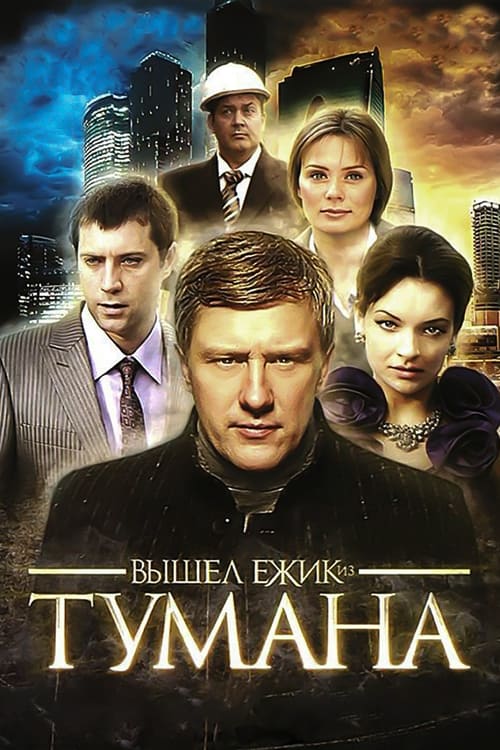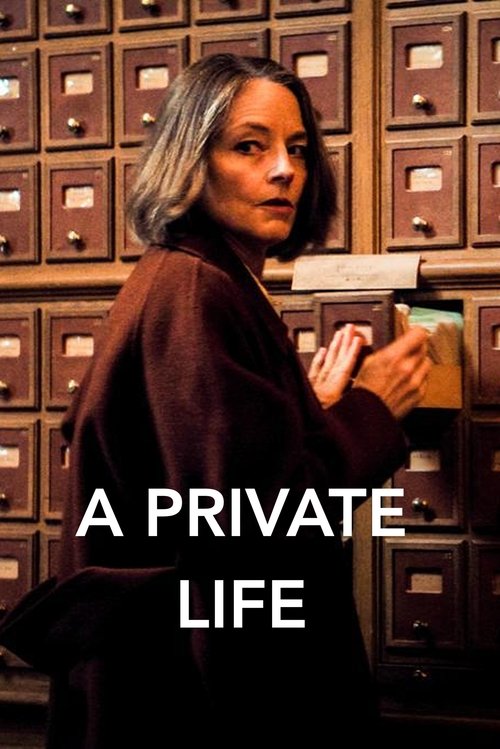
Ask Your Own Question
What is the plot?
The train wheels clatter over the rails, a steady rhythm beneath the soft murmur of conversation and the occasional burst of laughter. It is 1993, and the air is thick with the scent of old leather and warm bread. In a compartment of a train rolling through the Russian countryside, two young women, Lena Bobileva and her friend Margarita Zolotnitskaya, sit across from two men, Igor Tyurin and Vadim Smirnov. Lena is quiet, her eyes downcast, her hands folded neatly in her lap. She is from a small village, gentle and unassuming, while Margarita is bold, her laughter ringing out like a bell. Igor and Vadim, both students of physics, are instantly drawn to Lena's quiet beauty and kindness. Margarita watches with amusement as the two men vie for Lena's attention, their eyes lingering on her every move.
The journey is brief, but the connection is immediate. When the girls decide to spend their summer in Lena's village, Igor and Vadim follow, renting a small house nearby. Days pass in a haze of laughter, stolen glances, and the warmth of new friendship. Lena finds herself drawn to Igor, his thoughtful words and quiet intensity. Vadim, ever loyal, watches from the sidelines, his affection for Lena growing with each passing day. Margarita, meanwhile, flirts with Vadim, but her heart is not truly in it. She sees the way Lena looks at Igor, and she encourages her friend to follow her feelings.
One evening, as the sun sets behind the trees, Igor and Lena walk together along a dirt path. The air is cool, the sky painted in hues of orange and purple. Igor takes Lena's hand, his voice soft. "You're different from anyone I've ever met," he says. Lena smiles, her heart swelling with hope. For a time, everything feels perfect. But perfection is fragile. One night, after a party, Igor gives in to temptation, sharing a moment with another woman. When Lena finds out, her world shatters. She confronts Igor, her voice trembling. "How could you?" she asks, tears streaming down her face. Igor tries to explain, but the damage is done. Lena walks away, her heart broken.
Vadim is there, as he always has been, offering comfort and support. Margarita, seeing Lena's pain, urges her to give Vadim a chance. "He loves you," she says. "He always has." Lena, still reeling from Igor's betrayal, agrees. She marries Vadim, and together they build a life. Margarita drifts away, her own path leading her elsewhere.
Sixteen years pass. The train ride, the village, the heartbreak--it all feels like a distant dream. Lena is now Elena Vasilevna Smirnova, financial director of a large construction company. She is married to Vadim, and they have a daughter, Alevtina (Alya), whom they adopted after Margarita, now living in Prague, gave her up. The family lives in Vadim's mother's apartment, a cramped space filled with the weight of unspoken tensions. Elena is respected at work, but her home life is strained. Vadim's mother, Natalia Lvovna, is cold and critical, never fully accepting Elena as her daughter-in-law.
It is the spring of 2009. Elena sits at her desk, reviewing financial reports. The office is quiet, the hum of computers filling the air. Suddenly, her boss calls her into his office. "Elena, I'm sorry," he says, his voice heavy. "We have to let you go." The words hit her like a punch to the gut. She leaves the office, her mind racing. How will she support her family? How will she face Vadim?
That evening, she returns home, her heart heavy. Vadim is waiting for her, his expression unreadable. "I need to tell you something," he says. "I'm leaving. I've met someone else." Elena stares at him, her world crumbling. "Who?" she asks, her voice barely a whisper. Vadim hesitates, then says, "It's Vika." Elena feels as if the ground has been ripped out from under her. She turns to Natalia Lvovna, hoping for support, but the older woman is unsympathetic. "You should have been more careful," she says. "Now you'll have to leave."
Elena is left alone, her life in ruins. She tries to hold on, to keep her family together, but the strain is too much. One day, Alya, now seventeen, finds an old document hidden in a drawer. Her hands tremble as she reads the words: "Adopted daughter." She confronts Elena, her voice shaking with anger. "You lied to me," she says. "All these years, you lied." Elena tries to explain, to apologize, but Alya is beyond reason. "I want to go to Prague," she says. "I want to find my real mother."
Elena watches helplessly as Alya packs her bags and leaves for Prague. The apartment feels empty, the silence deafening. Natalia Lvovna is relentless, demanding that Elena leave. "You have no right to stay here," she says. Elena pleads, but the older woman is unmoved. She is forced to move out, her life reduced to a single suitcase and a handful of memories.
Days pass, each one heavier than the last. Elena struggles to find work, to make ends meet. She feels isolated, abandoned by everyone she once trusted. Then, one evening, her phone rings. It is Alya, her voice frantic. "Mama, help me," she cries. "Something terrible has happened. Please, come to Prague." Elena's heart pounds. She tries to call Vadim, to ask for help, but he refuses. "I can't get involved," he says. She turns to Natalia Lvovna, to Margarita, to her old friend Sasha, but no one will lend her the money she needs to travel.
Desperate, Elena takes whatever odd jobs she can find, scraping together enough for a ticket to Prague. The journey is long and exhausting, but she is determined. When she arrives, she finds Alya in a state of panic. "Mama, I'm so scared," Alya says, clinging to her. Elena holds her daughter close, promising to protect her. Together, they face the unknown, the fear of what lies ahead.
Back in Russia, tragedy strikes. Natalia Lvovna dies suddenly, her passing a shock to everyone. Vadim is devastated, his grief compounded by guilt. He realizes too late how much he has lost, how much he has taken for granted. He tries to reach out to Elena, but she is focused on Alya, on keeping her daughter safe.
As the year draws to a close, Elena and Alya return to Russia. The holidays are approaching, but there is little joy in their home. Alya is still struggling to come to terms with the truth, and Elena is exhausted, her spirit worn thin. One evening, there is a knock at the door. It is Vadim, holding a small package. "I brought gifts," he says, his voice hesitant. Elena opens the door, her expression guarded. Vadim looks past her, into the apartment. "Where is Alya?" he asks. Elena tells him that Alya is with her boyfriend, Artem. Vadim nods, then says, "I heard you were in Prague. I'm glad you're back."
Elena invites him in, but the tension between them is palpable. They talk, but the words feel hollow, the distance between them too great to bridge. Vadim leaves, the package of gifts untouched. As he walks away, he sees a figure in the distance--a man standing by the door of a small house in the village. It is Igor, his old friend, his rival. Vadim stops, watching as Igor enters the house. He realizes that Elena has returned to her roots, to the place where it all began. He turns and walks away, the weight of his choices heavy on his shoulders.
In the village, Elena sits by the window, watching the snow fall. Igor is with her, his presence a comfort. They talk, not of the past, but of the future. Elena feels a sense of peace, a quiet hope. The road ahead is uncertain, but she knows she is not alone.
The story ends as the new year begins, the snow covering the village in a blanket of white. Elena, Igor, and Alya stand together, their lives forever changed by the trials they have faced. The past is not forgotten, but it no longer defines them. They look to the future, their hearts open to the possibility of healing, of forgiveness, of love.
What is the ending?
In the ending of Вышел ёжик из тумана, the hedgehog, after a series of adventures and encounters, finds himself in a moment of reflection and realization about friendship and the importance of connection. The film concludes with a sense of warmth and understanding as the hedgehog embraces his newfound relationships.
As the story unfolds towards its conclusion, the hedgehog, having navigated through the misty forest, comes to a clearing where he encounters various animals he met along his journey. Each character represents a different aspect of companionship and the challenges of communication. The hedgehog, initially shy and hesitant, begins to understand the value of opening up to others.
In a poignant scene, the hedgehog stands in the clearing, surrounded by the friends he has made. The atmosphere is filled with a gentle light, symbolizing clarity and warmth. The animals gather around him, sharing stories and laughter, which highlights the bonds they have formed. The hedgehog, once isolated and unsure, now feels a sense of belonging and acceptance.
As the camera pans out, the mist that once enveloped the forest begins to lift, revealing a vibrant landscape filled with life and color. This visual transformation signifies the hedgehog's internal journey from loneliness to connection. The final moments show the hedgehog smiling, a clear indication of his emotional growth and the joy he finds in his friendships.
The film closes with a serene shot of the hedgehog walking alongside his friends, a symbol of unity and the importance of companionship in overcoming life's challenges. Each character, having played a role in the hedgehog's journey, finds their own sense of fulfillment and happiness, reinforcing the film's message about the power of friendship and understanding.
Is there a post-credit scene?
The movie Вышел ёжик из тумана (2010) does not have a post-credit scene. The film concludes its narrative without any additional scenes after the credits roll. The story wraps up with a poignant resolution, focusing on the themes of friendship, courage, and the journey of self-discovery, leaving the audience with a sense of closure. The emotional weight of the film is encapsulated in its final moments, emphasizing the bond between the characters rather than extending the narrative further.
What is the significance of the hedgehog's journey through the fog?
The hedgehog's journey through the fog symbolizes a quest for self-discovery and understanding. As he navigates through the mist, he encounters various characters and challenges that reflect his internal struggles and desires, ultimately leading him to confront his fears and insecurities.
Who are the key characters that the hedgehog meets during his journey?
During his journey, the hedgehog meets several key characters, including a wise owl who offers guidance, a playful rabbit who represents innocence and joy, and a mysterious fox who embodies cunning and danger. Each character plays a crucial role in shaping the hedgehog's understanding of himself and the world around him.
What internal conflicts does the hedgehog face throughout the film?
The hedgehog grapples with feelings of loneliness and fear of the unknown. His internal conflict revolves around his desire for companionship and acceptance while simultaneously fearing the vulnerability that comes with opening up to others. This struggle is depicted through his interactions with the other animals and his reactions to the challenges he faces.
How does the hedgehog's relationship with the other animals evolve?
Initially, the hedgehog is hesitant to engage with the other animals, reflecting his isolation. However, as he encounters them and shares experiences, his relationships evolve from suspicion and fear to trust and camaraderie. This evolution is marked by moments of vulnerability and connection, highlighting the importance of friendship in overcoming personal challenges.
What role does the fog play in the hedgehog's transformation?
The fog serves as both a physical and metaphorical barrier that the hedgehog must navigate. It represents confusion and uncertainty in his life. As he moves through the fog, he confronts his fears and learns to trust himself and others, leading to a transformation where he emerges more confident and self-aware.
Is this family friendly?
The movie "Вышел ёжик из тумана" (Hedgehog in the Fog) is generally considered family-friendly, but it does contain some elements that might be unsettling for very young children or sensitive viewers.
-
Dark Themes: The film explores themes of fear, loneliness, and the unknown, which may be emotionally intense for some viewers.
-
Mysterious Atmosphere: The foggy setting creates a sense of uncertainty and can evoke feelings of anxiety or confusion, particularly in younger audiences.
-
Animal Encounters: There are scenes involving various animals that may appear threatening or frightening, which could be distressing for children.
-
Existential Questions: The film raises philosophical questions about life and existence that may be difficult for younger viewers to grasp, potentially leading to feelings of unease.
Overall, while the film is suitable for family viewing, parents may want to consider these aspects when deciding if it is appropriate for their children.























